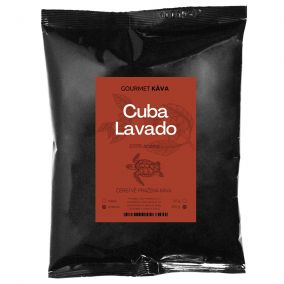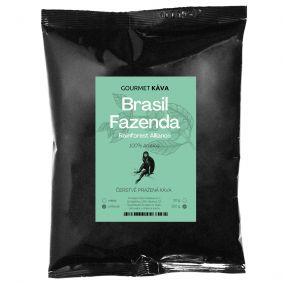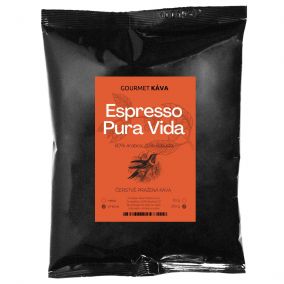Diabetics are bound by a series of dietary regulations. Do they include drinking coffee? Let's take a look together at how a popular drink can affect a diagnosis called diabetes.
COFFEE AND SUGAR COOPERATIVES OR ANTI-INFLAMMATORS?
There are almost one million diabetics in the Czech Republic. At the same time, statistics indicate that more than half of our population drinks two or more cups of coffee a day. Although surveys do not look at how many people fall into both of these groups, there are certainly not a few.
Since the very nature of the disease is based on impaired glucose metabolism and insulin production (possibly insulin resistance is at play), the question arises.
How does coffee affect glucose and insulin levels?
Thanks to a 2004 study, we know that when type II diabetic patients were given caffeine tablets before meals, they experienced a significant increase in post-meal glucose levels. At the same time, symptoms of insulin resistance were monitored.
Today, experts believe that genetics plays a part in this regard. It is our genes that code how our bodies process caffeine and whether blood sugar levels are affected at the same time. People who metabolise caffeine more slowly have higher blood sugar levels than those whose bodies process caffeine at a more brisk pace.
Of course, a relatively crucial piece of information is that in the original study, the subjects were given caffeine tablets, i.e. they did not drink coffee. And coffee is not only a source of caffeine, it also offers a number of valuable, beneficial substances.
So, although coffee as a source of caffeine may impair insulin sensitivity, which is obviously not desirable in diabetics, the drink also contains magnesium, chromium and polyphenols - substances that improve insulin sensitivity, so may counteract the effects of caffeine in this regard.
Who is puzzling over the questions?
How can caffeine raise blood sugar levels?
We'll be happy to answer that. Caffeine, as a powerful stimulant, promotes the secretion of adrenaline, which signals the liver to release stored glucose. This is the principle behind the surge of energy you feel after drinking coffee. The fact that additional sugar enters the blood, however, may be undesirable for a diabetic.
Safe doses of caffeine for diabetes?
There are no general recommendations. A dose that one diabetic is fine with may be risky for another. What's more, you have to take into account that caffeine is not only in coffee, it is also hidden in other drinks or even food. So diabetics need to pay attention when reading labels not only to the sugar content, but also to the presence of caffeine.
Watch what you add to your coffee
Because few people drink coffee just black without sugar and milk, you also need to pay attention to the additives you flavour your coffee with. For diabetics, of course, sweetening coffee with conventional sugar is not desirable. So artificial sweeteners would be offered, but in the case of sucralose, for example, there has been a lot of talk in recent years that it too can adversely affect blood sugar levels. As for milk, it's usually not harmful in small amounts, but you mustn't overdo it.
Effective prevention is not the same as effective treatment
Thanks to research, we know that regular coffee consumption reduces the risk of developing type II diabetes. However, if you have already been diagnosed with diabetes, drinking coffee may reduce your insulin sensitivity, i.e. your body's ability to respond to insulin. And that's already an alarming effect in a diabetic.
There are, however, patients who do not respond to coffee or caffeine in this way, so it is not possible to state unequivocally that diabetics should give up coffee. Instead, each patient should discuss the issue of consuming their favourite beverage with their doctor.
Sources:
https://pubmed.ncbi.nlm.nih.gov/29569539/
Lavado Coffee from the mountains in southeastern Cuba will surprise you with almost zero acidity and a strong flavor of bitter chocolate and caramel.
Lavado Coffee from the mountains in southeastern Cuba will surprise you with almost zero acidity and a strong flavor of bitter chocolate and caramel.
Guatemalan coffee Trés Maria stands out for its perfect balance and pleasant sweetness complemented by the taste of ripe tropical fruit.
Guatemalan coffee Trés Maria stands out for its perfect balance and pleasant sweetness complemented by the taste of ripe tropical fruit.
Extremely low acidity and chocolate taste are combined in Brazil Fazenda Rainforest coffee, by purchasing which you support the idea of an ecological and socially friendly way of growing coffee .
Extremely low acidity and chocolate taste are combined in Brazil Fazenda Rainforest coffee, by purchasing which you support the idea of an ecological and socially friendly way of growing coffee .
Ethiopia gave coffee its name after the Ethiopian province of Kaffa, so it is no surprise that one of the best coffees in the world is grown there.
Ethiopia gave coffee its name after the Ethiopian province of Kaffa, so it is no surprise that one of the best coffees in the world is grown there.
A unique blend of 5 types of Arabica from Central and South America, supplemented with quality robusta , for an espresso full of flavor, strength and quality crema.
A unique blend of 5 types of Arabica from Central and South America, supplemented with quality robusta , for an espresso full of flavor, strength and quality crema.
Cuba Lavado, whole bean Arabica coffee
Guatemala Trés Maria, whole bean arabica coffee
Brazil Fazenda Rainforest, whole bean arabica...
Ethiopia Sidamo, arabica coffee beans
Espresso blend Pura Vida, whole bean coffee

































































































